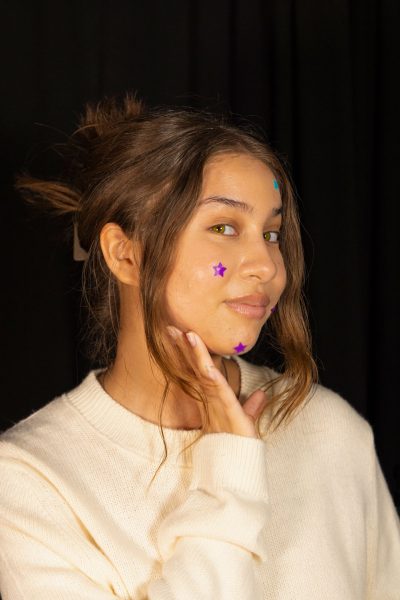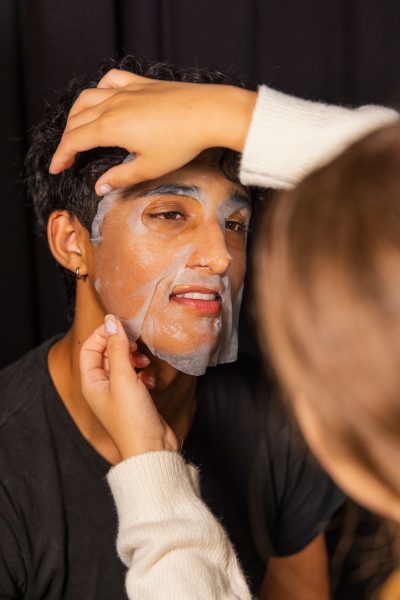It’s no secret that college students are prone to acne. If you look around campus, it’s not uncommon to see students with patches and makeup. That is because few students have the budget for $50 creams that will help keep their skin clear. Catering to luxury is unrealistic when you’ve got bills, supplies and other expenses. The “broke college student” is a real thing, and so are nearly empty bank accounts. Taking care of your skin can be simple, effective and affordable—if you know the right tricks.
Inside Fullerton interviewed two board-certified dermatologists, Dr. Tobey Wu-Kuo from St. Jude Heritage Medical Group Dermatology in Brea, and Dr. Jennifer Ledon from Hodge Dermatology in Fullerton. They both answered questions regarding acne and affordable skincare routines for college students on a budget.
These interviews have been edited for clarity and length.

What is acne, what are the causes and where does it commonly appear?
Wu-Kuo: Acne consists of three categories: comedonal, inflammatory and cystic. Blackheads and whiteheads fall under comedonal, while pink bumps that may or may not be tender, and can include the pustules, are considered inflammatory. Acne can appear anywhere, and I would see the younger and pre-adolescents deal with comedonal acne on the forehead. Until treatment begins, you may not realize it’s there until it surfaces.
What is the reason dry skin or oily skin appears? Do seasons play a factor in this?
Ledon: There are lots of different reasons for dry skin. When you have dry skin all over your body and face, you may have atopic dermatitis, also known as eczema, which causes water deficiency in the skin barrier. Another issue could be cholesterol levels. We have cholesterol in our skin layers that works kind of like a spackle to keep the water in. When you take an anti-cholesterol medication, it can dry up the cholesterol in your skin, and that can cause dryness. That’s why emollients or products like Vaseline, thick moisturizing creams, Aquaphor or other kinds of ointments are recommended for patients with dry skin.
Could you explain the steps to correctly wash your face?
Wu-Kuo: Obviously, you wash your face first, and if there is a medicated face wash or over the counter, leave it on for 20-30 seconds. Medication that you may use for the skin should come after moisturizer, and with or without sunscreen. But, when you start to add things, it tends to leave some form of irritation. Over washing is not good, and you shouldn’t wash your face more than three times a day.
Are there some products you should use at specific times of day?
Ledon: A skin routine contains two separate regimens, one for the morning and another in the evening. You should start from the thinnest product to the thickest product. Certain medications like retinols should only be used at night for better results. It is deactivated by UV light, and exposure to sunlight will make the product ineffective.
Should you put on sunscreen every day?
Wu-Kuo: I am a believer in using sunscreen every day, and if for anything, just for wrinkle prevention. But sunscreens are personal. I don’t recommend a specific brand or type because some people need moisturizer, some people do not. I believe in simplifying the routine if you can. I like a higher SPF in the summer, 50 or higher, and in the winter, 30 SPF. For those who are concerned about the chemicals in sunscreen, I recommend sticking with zinc oxide or titanium dioxide.

What is a common misconception about skincare?
Ledon: I think the most common misconception is that people who have darker skin can’t get skin cancer, or that they’re naturally protected from getting skin cancer. And while it’s true that fairer skin is more susceptible to sun damage, because it’s not as protected, you can get skin cancer with all skin types. Also, do not pick your skin. Anything that is going to cause bleeding on your face can potentially cause scars. Scars can be reversible, but it’s much harder to treat scars than to prevent them.
Wu-Kuo: In college, a lot of times people think about skincare as, “What can you do to your skin?” A lot of your skin health and appearance come from your daily habits. Some foods can cause acne or make it worse, like sugar, dairy products, and some protein supplements. Dark chocolate is fine. Sleep is also a big one. I know college students don’t get a lot of sleep. Prioritizing sleep is important.
Taken from the Winter 2024 print issue of Inside Fullerton. Read it here.



